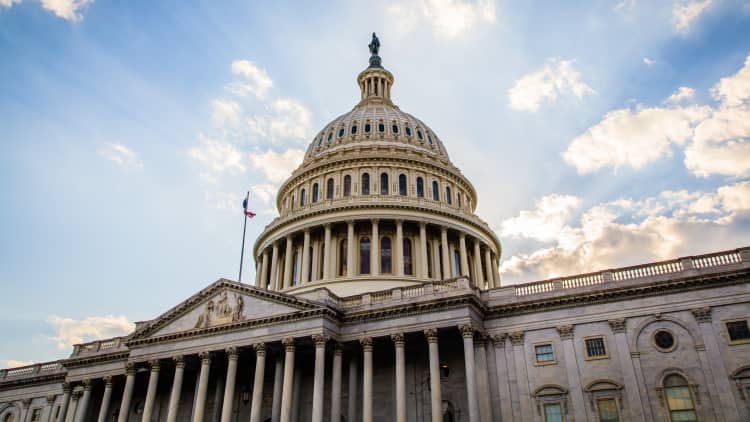As a result of the partial government shutdown, Leo, a tax examiner for the IRS in Ohio, has been out of work for 10 days now.
He cannot pick up his more than $200 insulin prescription because he doesn't know when his next paycheck will come.
"I have to save every penny right now," said Leo, who asked to use his middle name only because he's not permitted to speak about his job with the media.
If the stalemate in Washington perists, he expects to rely on his credit card to get by.
"But will the government pay the interest I accrue?" he said.
Adding to Leo's frustration is the executive order President Donald Trump issued on Friday that froze federal workers' salaries for 2019.

Some 800,000 federal workers across the country find themselves in financial uncertainty as the government shutdown crawls into its 12th day. Some 420,000 employees are considered "essential," and are working without pay, while another 380,000 have been ordered to stay home, according to calculations provided to CNBC by Paul Light, a professor of public service at New York University.
The shutdown's reach also fans out to contractors for the federal government, who are unlikely to be included in any legislation Congress passes to make sure federal workers are compensated for the period the government was closed.
There were some 4.1 million government contractors in 2017, according to Light. "These workers are vulnerable," he said. "If there's no work on Monday, they don't go in and they don't get paid."
Julie Burr, an administrative assistant on contract for the U.S. Department of Transportation in Kansas City, Missouri, has been forced to deplete her savings. The single mother was gearing up to bring her 14-year-old son to Florida this summer on vacation. "My son has never seen the ocean," Burr, 49, said. "It's not likely now."
Burr has started a GoFundMe account to raise money and said if the shutdown continues much longer she won't be able to make her February rent. In the meantime, she's discontinued her Netflix subscription and is cutting back on grocery shopping.
"I wake up every day hoping this will get resolved," Burr said. "I just want to get back to work."
The uncertainty around when the government will reopen is the most taxing, said David Arvelo, a health communications specialist at the Food and Drug Administration. He's been out of work since the shutdown began. "It's very difficult to figure out how long we can survive with the savings we have," Arvelo, 55, said.
He and his husband, Ian, have avoided eating out in the Dallas area and are using the food supply they have already.
"Very fortunately my mother got us for Christmas Omaha Steaks and a bunch of food," he said. "We're trying to go through those things."
Doreen Greenwald, a revenue officer at the IRS, is scrambling to figure out how to pay her mortgage this month. "Mortgage companies don't accept an IOU," Greenwald, 52, said.
She'll either borrow money from a family member or go into debt, she said. "I have small savings, but it's not going to make a difference in this mess."
She's now considering picking up a part-time retail job until the government reopens.
"People think you're not working, it's a vacation," she said. "You don't have money. You're just waiting."
Tony Reardon, president of the National Treasury Employees Union, said the group had heard from hundreds of frantic federal employees. "They're scared," Reardon said. "They don't know how they're going to put food on the table."
He received an email Wednesday from a man who works for U.S. Customs and Border Protection, asking if he should take out a loan. The man has few other options — since he was deemed an "essential" employee, he's had to continue working throughout the shutdown.
"It's not as though these people can go out and get any job," Reardon said. "They're working."
WATCH: National parks latest to shutter facilities
More from Personal Finance:
Here's the tax bite on that $425 million Mega Millions jackpot
Spending can trip up your New Year's resolutions
Six key considerations if you're approaching retirement


